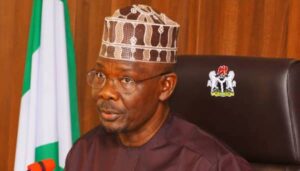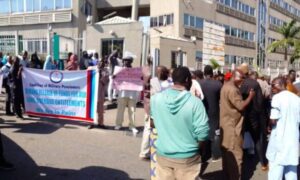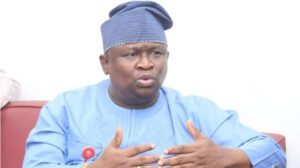$315m food security cash: Experts x-ray implication as World Bank excludes Nigeria
…Harp on sustainable agricultural practices, freedom from overreliance on foreign aids
By Abimbola Abatta
A World Bank report indicated that the number of poor persons in Nigeria would rise to 95.1 million this year. The banks also revealed that before the end of 2022, an additional one million Nigerians would be trapped in poverty. Some of the underlying factors for this is rising inflation. Nigeria’s inflation rate in July 2022, as revealed by the National Bureau of Statistics (NBS), rose to a 17-year high of 19.64 per cent.
What does this signify?
There would be a surge in the cost of goods and services and the cost of living. As the purchasing power of citizens is eroded, many will be unable to purchase as much as they have been able to with their monies.
Earlier in the year, a report by the United Nations Food and Agriculture Organisation revealed that about 19.4 million Nigerians would face food insecurity between June and August 2022. The food crisis, it was noted, would affect Nigerians in 21 states and FCT including, 416,000 Internally Displaced Persons (IDPs).
This is coming at a time Nigeria is grappling with rising insecurity, farmers-herders clash, educational crisis, and post-COVID-19, among others. Meanwhile, amid these teeming challenges that threaten to topple over, Nigeria was excluded from the list of beneficiary countries for the $315 million World Bank fund for African countries to support food security.
The food security cash is the second phase of the West Africa regional Food Systems Resilience Programme (FSRP-2) approved in International Development Association (IDA) financing.
While the first phase of the programme provided the sum of $330 million for four African countries, including Burkina Faso, Mali, Niger, and Togo, the second phase targets only Chad, Ghana and Sierra Leone.
This is coming at a period when it is projected that approximately 38.3 million people in West Africa are in food security crises.
If Nigeria had been included in the intervention, it would have assisted in increasing and complementing the government’s preparedness against food insecurity while also improving the resilience of our food systems. It would have also helped to boost our tendencies to adapt to climate change and other environmental issues.
It is no longer news that insurgency, armed banditry and farmers, herders clashes as well as post-harvest losses and the deteriorating economy have continued to negatively impact food and nutrition security in the country.
According to the Integrated Food Security Phase Classification (IPC), the hunger crisis in Nigeria has reached a depressing point as the country has the highest number of persons in West Africa (19.5 million) projected to be in crisis or worse including 1.2 million people in emergency phase.
Due to the prolonged conflict in the area, the Northern region has a high level of food insecurity, the IPC revealed.
Although several interventions have been put in place to tackle this menace affecting Nigeria, they seem insufficient.
Commissioner for Economic Affairs and Agriculture at the Economic Community of West African States (ECOWAS), Ms. Massandjé Toure-Litse, had said, “Multiple shocks, driven by climate change and environmental degradation, weaknesses of the food markets, conflicts and insecurity, COVID-19 implications, and the war in Ukraine have further deteriorated food insecurity and inflation across West Africa.”
Following the exclusion of Nigeria from the $315m food security cash approved by the World Bank, stakeholders have weighed in on the implication.
For former President of the Chartered Institute of Bankers of Nigeria (CIBN) and Professor of Economics at Babcock University, Segun Ajibola, a nation that cannot feed itself is at the mercy of other nations.
Professor Ajibole noted that Nigeria needs the right push to address the issue of food insecurity in the country.
On the exclusion of Nigeria, he said, “What are the criteria and in which of those criteria are we lagging? Without a clear understanding of the criteria, it will be difficult to comment on why Nigeria as a country has been excluded because ordinarily, Nigeria has got a lot of support from international financial institutions and multilateral agencies in so many areas like infrastructure, small to medium enterprises, water project, electricity and even some humanitarian support.
“Having said that, there are a lot of efforts in the area of setting the food security for the country, with a lot of programmes, financial institutions are doing theirs, both the regulator and operators, a lot of incentives here and there.
“And as we all know, there are few challenges of insecurity of farmer, herdsmen and course, the perennial problems of agriculture like weather conditions, pestilence, cost of farm inputs and the fact that rural-urban migration is depopulating those in agriculture.
“All of these are affecting food supply and by extension food security for the country, so it’s a work in progress. But everybody recognises the fact, right from 1976 to date, that a nation that cannot feed itself is at the mercy of other nations.
“As a country, I believe we have the potential to feed ourselves. We have fertile arable lands to cultivate almost all forms of food items in the country, so with more and more push, I think we would be able to address the issue of food insecurity.”
Also, the Chief Executive Officer of the Centre for the Promotion of Private Enterprise (CPPE) and former Director-General of the Lagos Chamber of Commerce and Industry (LCCI), Dr. Muda Yusuf, said Nigeria deserves to be included on such a list.
Dr. Yusuf, however, noted that Nigeria cannot continue to depend on financial aid from foreign institutions. He also stressed the need to embrace mechanised farming and commercial agriculture.
In his words, “Nigeria deserves to be included on such a list because the food security situation in Nigeria is not better than what we have in Ghana. Even at that, I think Ghana has a better food security situation, but, strangely, Nigeria was excluded from this. I can understand countries that have extreme cases of starvation. But if it can get to Ghana, then I think it can as well get to Nigeria. So I think it’s something to worry about and I think there should be an engagement with the world Bank to interrogate the criteria for that.
“But having said that, we also have to take our destiny into our own hands as far as these matters are concerned. We cannot continue to be depending on the World Bank. We must be able to solve this problem. So what that is telling us is to do a lot more productivity in agriculture. We should apply a lot more technology, move our agriculture from subsistence to mechanised, and put more incentives in place to encourage commercial agriculture.
“We are not seeing much of mechanised agriculture. Our green states are still dominated by peasant farmers. This is 60 years after independence and that should not be. We should not be depending on hoes and cutlasses to feed a population of over two hundred million people.
“I think there is also a failure of policy. We need to address those issues and the issue of decertification. Our land is choking because of the problem of climate change. We need to invest more in irrigation across the country, not just in the northern part so that we are not depending on the rain all the time. Because rain-dependent agriculture makes production seasonal. Production should be all year round if we have a proper investment in irrigating schemes.
“Then we should address the issue of insecurity. Many of our farmers are not on the farm because of insecurity. So the assistance they need is not even for farming but for security. Once there’s security, they will go back to their farms. The security situation is also a major factor and these are things that we should do on our own without necessarily waiting on the World bank or any other aid.”
For financial analyst, Wole Samuel Adeyeye, the food security cash would have provided relief to Nigeria if included in the list.
To address the food crisis in the country, he said the government must tackle the insecurity challenges affecting food-producing states.
According to him, the exclusion “is really going to be a problem in the sense that it would have been a sort of relief for the country because food inflation is about 20%, which is not so good for the economy. Assuming we got something like that, a lot of agricultural companies and food-related companies would have benefited from that. Maybe it would have been distributed as grants or loans.
“How can we be self-sufficient in food production? The number one thing has to do with the insecurity in the country, which is really affecting a lot of things. Some food-producing states are currently being controlled by the bandits and Boko-Haram groups. It’s not helping the economy.
“What we can do now is to find a way to reduce the insecurities surrounding the food-producing states. It would help us in taming down the food inflation rates, which is very important.
“Another thing we need to work on is the Fx liquidity in the system. CBN needs to allow the forces of demand and supply to dedicate the Fx market so that people who need Fx can get raw materials.
“Also, the government needs to create an enabling environment for foreign investors who want to invest in the economy.”




